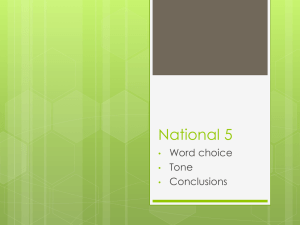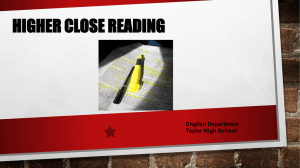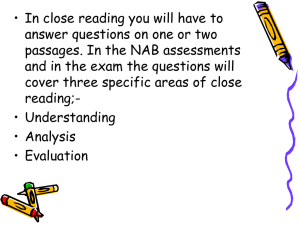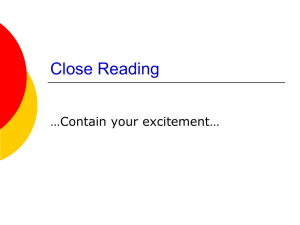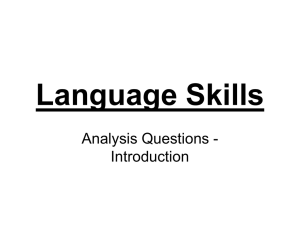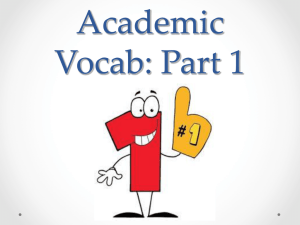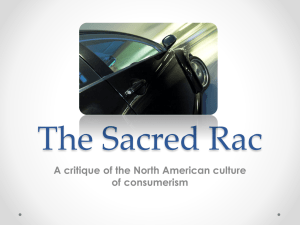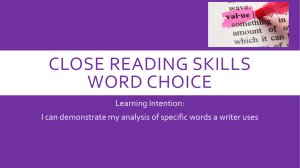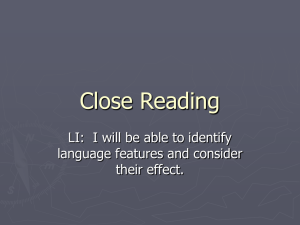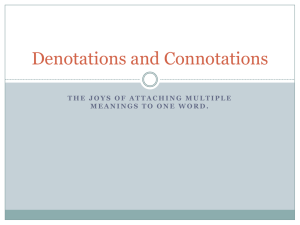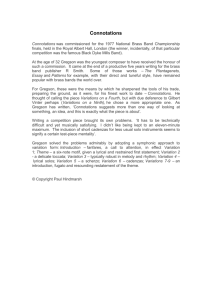Higher Close Reading no cause for celebration
advertisement
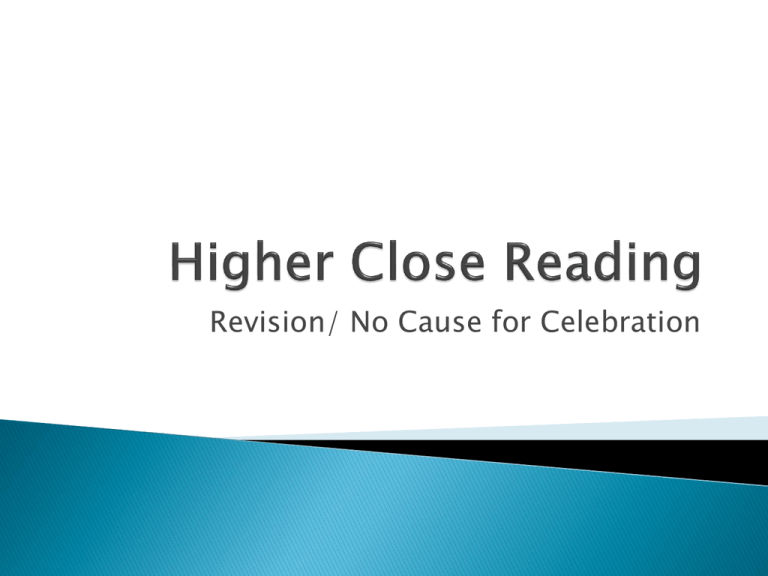
Revision/ No Cause for Celebration Show how the writer’s word choice in these lines creates a clear contrast between the drinking habits of the young and those of the middle-aged. You should refer to two examples for each group. Quote (try to keep to one word or phrase at a time) Comment on connotations (not literal meaning) Explain how these connotations convey the writer’s point Young: ‘blitzed’ has connotations of dangerous or reckless behaviour. This suggests that their drinking habits were uncontrolled and harmful. This is reinforced by ‘swig’, which has connotations of excess. This suggests that they were drinking large amounts in a careless manner. Middle-aged: ‘distribute’ has connotations of controlled and planned behaviour. ‘Tipple’ has connotations of something with little consequences, small and not serious. This suggests that their drinking is controlled, not excessive and is not problematic. Show how the writer's language conveys her contempt for any one of the groups she describes in lines 11-15 Word choice of ‘yelping’ has animalistic connotations. This suggest that the ‘young people’ being described engage in wild and unpleasant behaviour. How effective do you find the imagery of ‘a thimbleful of the 100% proof misery.’ A thimble is a very small cup that covers finger during sewing. Therefore, a thimbleful of a liquid would be a small amount. This is being compared to how mortality statistics are only a small part of the harm caused by alcohol. This harm is compared to ‘100% proof misery’. I found this effective because this compares an extremely strong alcohol to the damage it causes to our society. In the lines 48-69 the writer discusses the consequences of the liberalisation of the Scottish licensing laws in the 1970s. Summarise in your own words, as far as possible, why she thinks this was a ‘mistake’. 4U Identify four separate points Turn into your own words • • • • We convinced ourselves that drunken behaviour was the main worry, not the more widespread drinking habits. Liberalising our restrictions on alcohol has lead to a great increase in its consumption. We believed we could follow sensible European approaches to drinking, by drinking often but little. Instead we drink large quantities frequently. Now many more people drink to excess frequently. Previously this would only happen on special occasions. Identify the tone and how the writer creates this tone. Tone: Concerned/ mocking/ possibly ironic Word choice of ‘pop a cork’ has connotations of casual, careless behaviour. This suggests that our attitude to alcohol consumption is reckless. It also suggests celebration. The irony being that this not being used to mark a special occasion, just an everyday visitor. Show how the writer’s language in lines 1421 makes clear that she has little sympathy for the four young men. 4 A Sentence structure- The short, emphatic statement ‘Poor dears’ is an effective climax to the paragraph. The sharp, mocking tone clearly conveys the writer’s lack of sympathy and contrasts with the outlining of reasons why some sympathise with the boys in the rest of the paragraph. By ending the paragraph with this sentence, the writer undermines these sob stories. Tone- a mocking tone is created by the use of the image ‘One’s heart, however, fails suitably to bleed.’ Here the writer has manipulated a fairly clichéd image to again undermine those who defend the boys. In doing so she is making fun of those who claim that the boys deserve sympathy. A heart bleeding is an extreme image of pain and suffering, not something we would associate with feelings for drunken louts. How does the writer’s sentence structure in lines 30-35 reinforce her point about the effects of over-indulgence?
